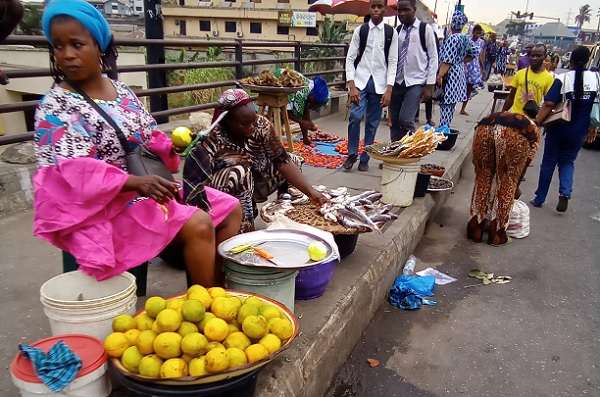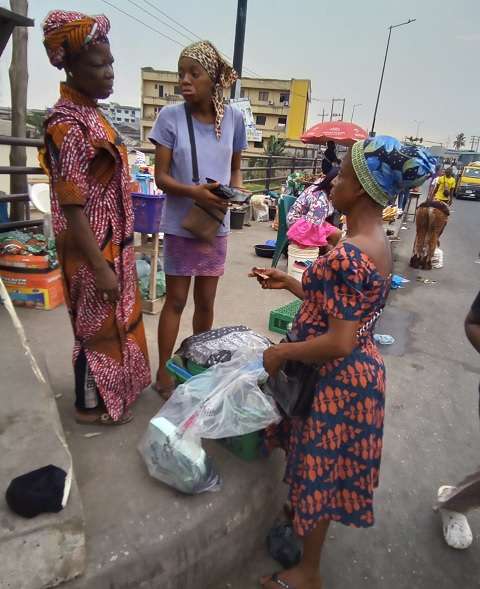
Climate crisis has introduced a new order of living for humans on earth in the past few years, with scary predictions about worse global health outcomes for everyone. Some of these predictions are already materialising, as the impact of the extreme weather condition is fast impeding access to quality food, safe drinking water and sanitation, clean air, and basic healthcare.
It is however unfortunate that people living in low-middle- incomes countries, especially women and children, bear the larger burden of the catastrophic climate. Especially in Africa, most governments are not living up to expectations in protecting their citizens from the harsh effects of the weather conditions. The World Bank, in one of its recent reports, predicted a gloomy future of 21 million additional deaths by 2050, from just five health risks, which are extreme heat, stunting, diarrhoea, malaria, and dengue.
It further warned that if no urgent steps are taken to mitigate the hazards of climate crisis in developing countries, it could lead 40 million people into extreme poverty, by 2030.
Of particular concern is the impact of the extreme heatwaves on pregnant women and children, which has the potential of leading to preterm labour, as well as having long-lasting effects on their unborn babies.
Pregnant women’s burden of climate crisis
Mrs Titilayo Ajayi, a seven-month pregnant woman narrated her ordeals since she took in last year to our correspondent. “I have never been my normal self since I became pregnant late last year, because it has been from one condition to the other, due to the extreme weather condition. As a seamstress with my shop just by the roadside, the continuous rains of last year affected my health in no small measure, with the muddy path to my shop always moving me to throw up whenever I was going to shop in the morning.
“That aside, due to lack of drainage on the street, the stagnant water created room for mosquitoes to breed, and before I knew it, while working to deliver to customers at the expected time, I got exposed to mosquitoe bite. In fact, I lost count of how many times I treated malaria last year.
“As if that was not enough, the climate episode for 2024 fell on me in another dimension, with unprecedented heatwaves and hazy weather, which usually make me weak and drowsy. As a result, I had to stop going to the shop for now, until I put to bed.”
Ajayi is just one of the millions of pregnant women finding it tough to cope with the changing climate, a situation threatening their health and that of their unborn babies. This shows the urgent need for government’s intervention.

Bruce Aylward, assistant director general for Universal Health Coverage Life Course at the World Health Organisation (WHO), affirmed this challenge, saying, “Climate change poses an existential threat to all of us, but pregnant women, babies and children face some of the gravest consequences of all.”
Climate change effects on nursing mothers and children
Nursing mothers also have their share of the climate disaster, with most of their children coming down with respiratory infections during this season. In an exclusive interview with one Mrs Chika Innocent, she revealed how her two little boys, ages three and five, have been battling with cold and catarrh since last year.
Mrs Innocent informed our correspondent of how she had been frequenting pharmacies in search of an effective medicine against cold and catarrh, as there was no significant improvement in the children’s conditions.
“I have bought several cough suppressants and decongestants, to no avail. In fact, sometime in January, the younger one just woke up with swollen red eyes, and soon, the other one got infected too. So, it was that bad that they had a three-in-one infection of cough, catarrh and apollo (conjunctivitis).
“It was not funny at all, as they transferred all their frustrations to me, while I tried to alleviate their pains. To make matters worse, the nearby health centre to us in Agunfoye Adamo, Lagos, is yet to be in operation; so it was a huge challenge for me,” she lamented.
The WHO’s representative, Aylward, further emphasised the urgent need for governments and the civil societies to act in line with policies and actions to salvage children’s future from the devastating effects of extreme weather condition.
“Children’s futures need to be consciously protected, which means taking climate action now for the sake of their health and survival, while ensuring their unique needs are recognised in the climate response.
“What we know now serves as a justifiable basis for urgent action by stakeholders to invest and develop climate action plans for all individuals that focus on improving maternal, newborn and child health (MNCH) – now and in the long-term,” he said.
Market women bemoan climate change health risks
Investigations on the deteriorating health conditions of some market women point to the rising temperatures. Most of them lamented the effects on their health. For Mrs Chioma Kalu, who sells roasted plantain along Lagos Road, Ikorodu, increase in her daily water intake could not suffice in neutralising the effects of the accumulated heat in her system. She said despite taking more than six sachets of water daily, her body system still vibrates in the evening due to the accumulated heat of the day. Unfortunately, being a widow with four children, she has no other source of income aside from her hazardous livelihood.
Tochi, a fair-complexioned young woman, who sells vegetables next to Kalu, also recounted her woes from the climate crisis, as well as her financial incapability in securing a shop for her business.
“This is how we face it every day. Although we have been warned against the effects but what do we do when we have to sell to survive?” she lamented.
Both Kalu and Tochi appealed to governments for the provision of low-cost sheds for women like them to reduce the effects of the climate crisis on their health.
Governments’ role in mitigating effects of climate crisis
In an exclusive interview with Mr Olumide Idowu, co-founder ICCDI Africa International Climate Change development Initiative, he highlighted several means by which the government can safeguard Nigerians from the risks of climate change. According to him, first among them is the promotion of sustainable and renewable energy sources. This can be done through promotion of electric automobiles and investment in renewable energy infrastructure like solar and wind power.
He advocated further that government should reduce air pollution and improve the air quality by using fewer fossil fuels, which can improve public health.
“The government can also invest in climate change adaptation strategies like improving healthcare infrastructure to better respond to climate-related health risks, implementing early warning systems for extreme weather events, and educating the public about climate change and its health effects,” he noted.
To protect vulnerable children and women who are disproportionately affected by extreme climate, due to their daily work schedules outside or by roadsides, Idowu called for the provision of safe and secure shelter, access to clean water and sanitation facilities, and the implementation of policies that ensure their rights and well-being are prioritised in climate change adaptation and disaster risk reduction effort.










